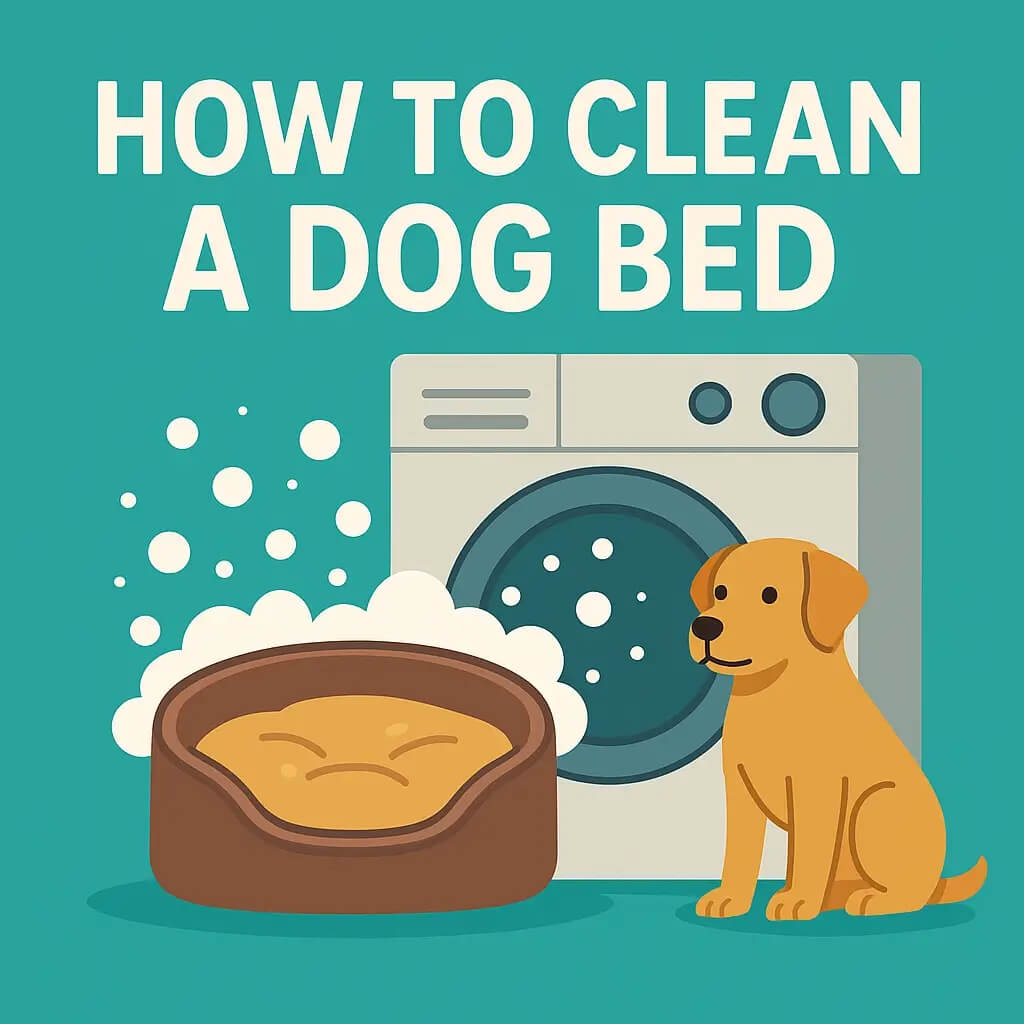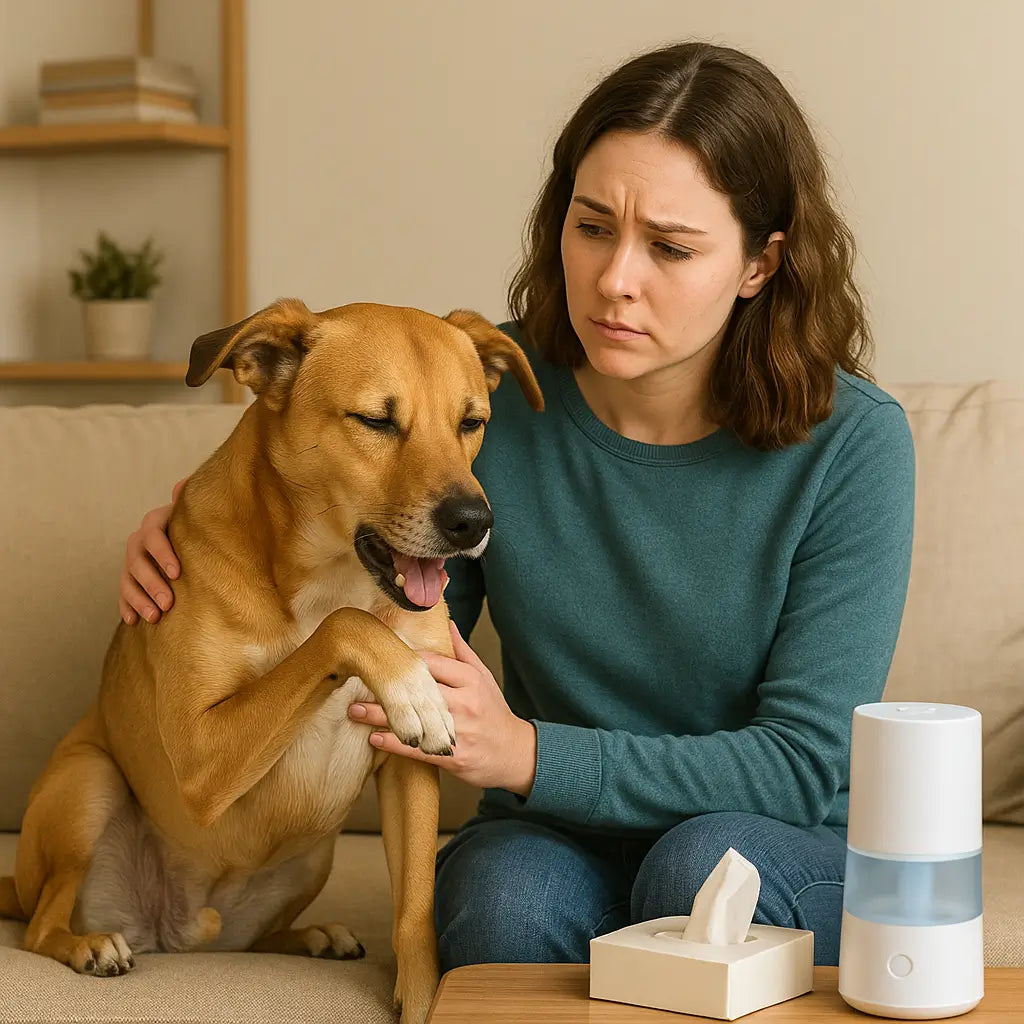As a dog owner, it can be confusing and frustrating to find that your dog peed on your bed. Whether it's a one-time accident or an ongoing issue, understanding why it happens is the first step in resolving it. There are several possible reasons why your dog might be peeing on your bed, ranging from medical conditions to behavioral problems. This guide will break down the common causes, explain what you can do about it, and help you avoid similar incidents in the future.
Overviews
-
17% of dog owners report experiencing accidents with inappropriate urination inside the house, including on dog beds.
-
Health problems like urinary tract infections (UTIs) and bladder stones are among the leading medical causes of inappropriate urination in dogs.
-
Separation anxiety or stress can trigger urinary accidents, especially if your dog is left alone or feels unsafe.
-
Dogs might also pee on the bed to mark territory, especially in households with multiple pets.
-
Young pups or adolescent dogs may still be working on their house training, which can lead to accidents.
Is It a Health Problem or Behavioral Issue?
When your dog pees on the bed, the first thing to consider is whether it’s a health issue or a behavioral problem. Let’s explore both:
Medical Causes
Several medical conditions could explain why your dog is having accidents, especially urinary issues. If your dog dribbles urine or struggles to control their bladder, it might be a sign of urinary incontinence or a urinary tract infection (UTI). Older dogs, in particular, can develop issues like kidney disease or bladder stones, which can lead to sudden accidents. For example, senior dogs often experience bladder control problems due to weakening muscles or underlying health conditions like Cushing's disease.
If you notice any of the following signs, consult a veterinarian:
-
Blood in the urine
-
Frequent urination or difficulty urinating
-
Dribbling urine
-
Unusual odor (often indicating a UTI)
Behavioral Causes
Behavioral issues are another major cause of inappropriate urination. Dogs sometimes pee on the bed due to anxiety or stress, especially if they’re left alone for extended periods or exposed to loud noises like thunderstorms. Separation anxiety is a common trigger for this kind of behavior. If your dog is stressed when you’re not around, they may seek comfort by peeing on your bed as a way to feel connected to you.
Dogs may also mark territory by urinating on your bed, especially in households with multiple pets or when there are other animals in the house. This behavior can be common in both male dogs and female dogs, particularly in unspayed or unneutered pets. Territorial marking is instinctual, and your bed may be seen as a prime spot to claim.
Why Your Dog Might Pee on Your Bed
-
Medical Issues: As discussed, health problems like UTIs, kidney disease, or bladder stones can lead to accidents.
-
Anxiety and Stress: Dogs experiencing separation anxiety or feeling stressed may urinate as a coping mechanism.
-
Territorial Marking: Dogs may use urine to mark their territory, especially if new animals or people enter the home.
-
House Training Issues: Young dogs or puppies might not have fully mastered potty training, leading to occasional accidents.
-
Excitement: Some dogs pee when overly excited, especially when greeting people or other animals.
What To Do When Your Dog Pees on Your Bed
Now that we’ve explored the potential causes, let’s talk about what to do if your dog pees on your bed. Here’s a step-by-step guide to help fix the issue:
-
Stay Calm: Don’t punish your dog for peeing on the bed. Negative reinforcement won’t solve the problem and can increase stress. Instead, address the root cause, whether medical or behavioral.
-
Visit the Vet: If the behavior is persistent or paired with other signs (e.g., blood in the urine, dribbling), take your dog to the vet to rule out health issues like UTIs, kidney disease, or bladder stones. It’s always best to seek professional help for underlying medical conditions.
-
Clean the Bed Properly: Use an enzymatic cleaner to remove the urine smell completely. Ordinary cleaners may leave behind a scent that encourages your dog to return to the same spot.
-
Reduce Anxiety: If separation anxiety is the cause, work on calming techniques. Consider crate training your dog, providing comforting toys, or using products like pheromone diffusers to reduce anxiety when you’re away.
-
Revisit House Training: For puppies or young dogs, it’s important to reinforce house training. Ensure your dog has a consistent potty schedule and is praised for going outside. Use positive reinforcement to encourage good habits.
Tips for a Pee-Free Bed
Once you’ve addressed the root cause of the issue, it’s time to implement strategies to prevent future accidents:
-
Health Prevention: Schedule regular vet checkups, especially for senior dogs or dogs with a history of urinary issues. Keep up with any prescribed treatments for conditions like kidney problems or Cushing’s disease.
-
Behavioral Training: Use positive reinforcement to reward good potty habits. Consider crate training if your dog is left alone often or tends to urinate when stressed.
-
Routine and Consistency: Establish a consistent dog's routine that includes regular bathroom breaks. Reinforce house training techniques consistently to prevent accidents.
-
Stress Management: Reduce stress by creating a calming environment. Avoid exposing your dog to loud noises, and provide a comfortable space for your dog to feel secure.
FAQs
Why did my dog pee on my bed suddenly?
There are several potential reasons why your dog might pee on your bed suddenly, including medical causes like a urinary tract infection (UTI) or bladder issues. It could also be a behavioral problem such as separation anxiety or territorial marking. If this behavior is new, consult your vet to rule out any health issues.
How do I stop my dog from peeing on my bed?
To stop your dog from peeing on your bed, first rule out any medical conditions by visiting the vet. Next, reinforce house training with a consistent potty schedule, use positive reinforcement, and consider crate training. Additionally, address any behavioral triggers, such as anxiety or territorial marking.
Is peeing on my bed a sign of medical issues?
Yes, peeing on the bed could be a sign of medical issues, especially if it’s accompanied by other symptoms like difficulty urinating or a change in the urine’s appearance. Urinary tract infections (UTIs), kidney problems, or bladder stones could be the culprits. Visit your vet to rule out health conditions.
Can separation anxiety cause my dog to pee on my bed?
Yes, separation anxiety is a common cause of inappropriate urination. Dogs with separation anxiety may urinate on their owner’s bed to feel closer to them or to mark their territory. Managing anxiety with training and calming products can help prevent this behavior.
Conclusion
-
Why did my dog pee on my bed? It could be due to medical issues, behavioral problems, or stress.
-
Address health problems first by consulting your vet, especially if the behavior is unusual or persistent.
-
Use positive reinforcement to strengthen house training and reduce accidents.
-
Help your dog manage anxiety or territorial marking by creating a calm, predictable environment.
-
Be patient and consistent—reinforce good habits and provide comfort for a well-adjusted pet.
By identifying the cause and following the recommended steps, you can stop your dog from peeing on your bed and restore peace to your home.












